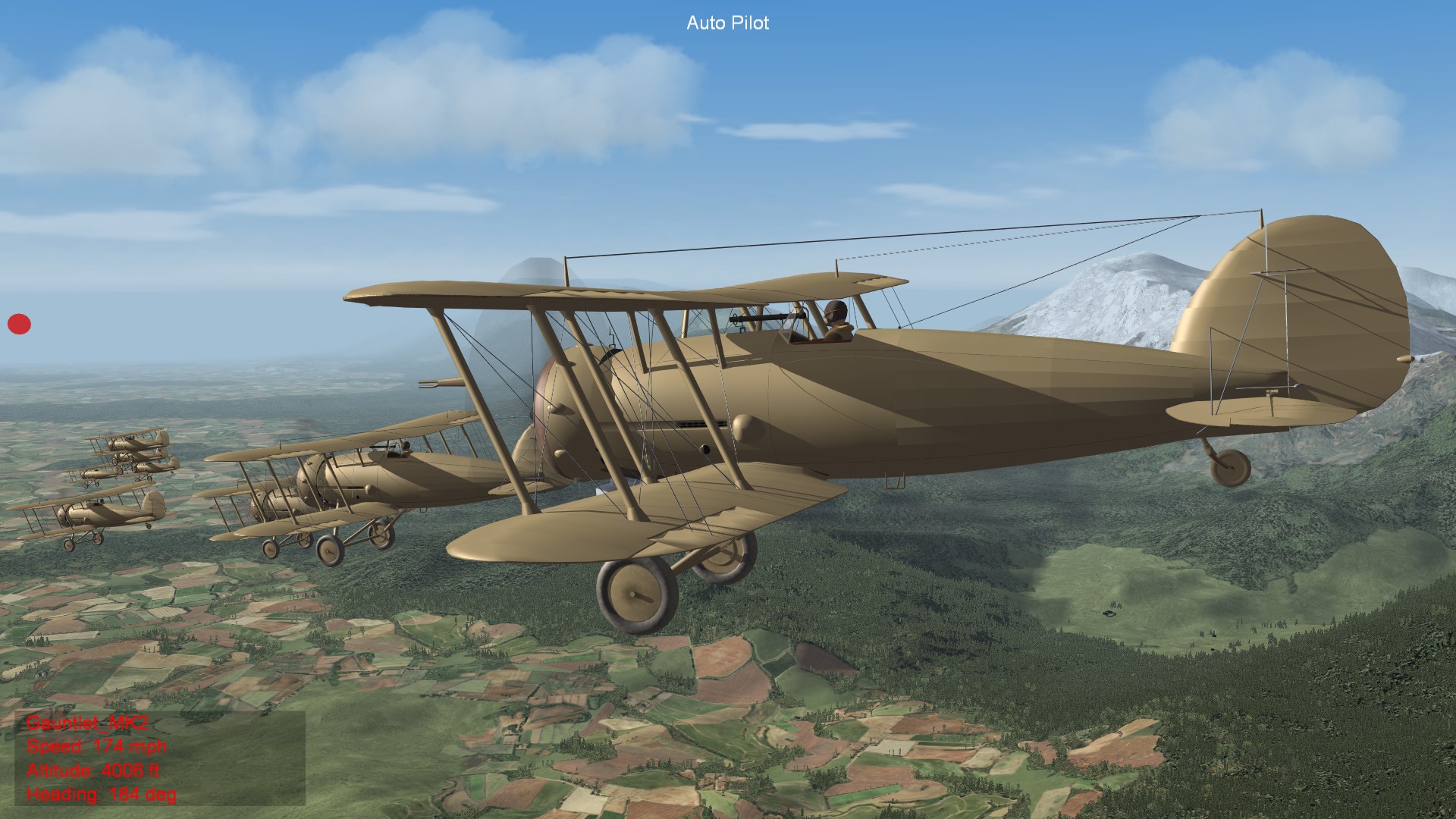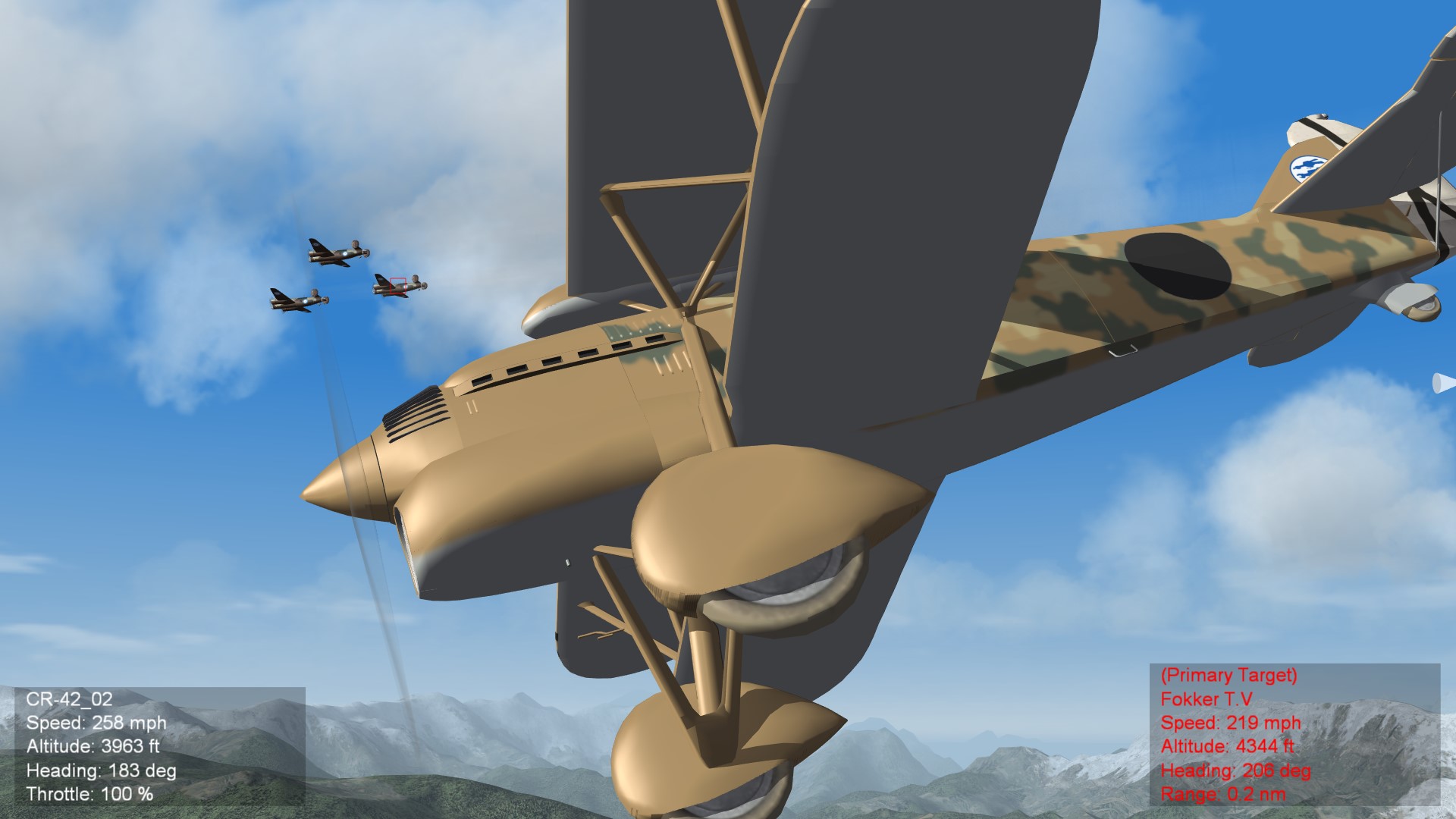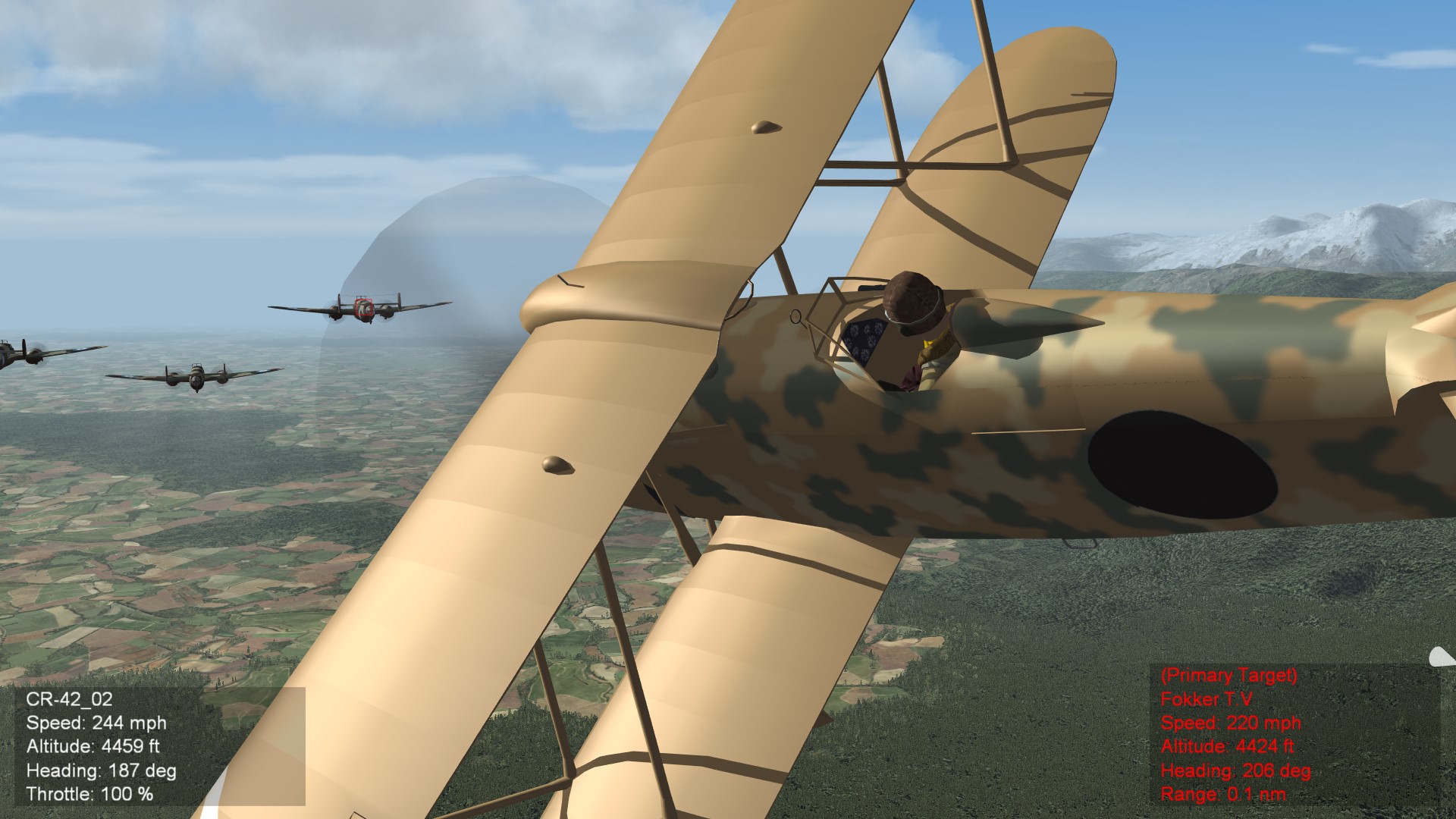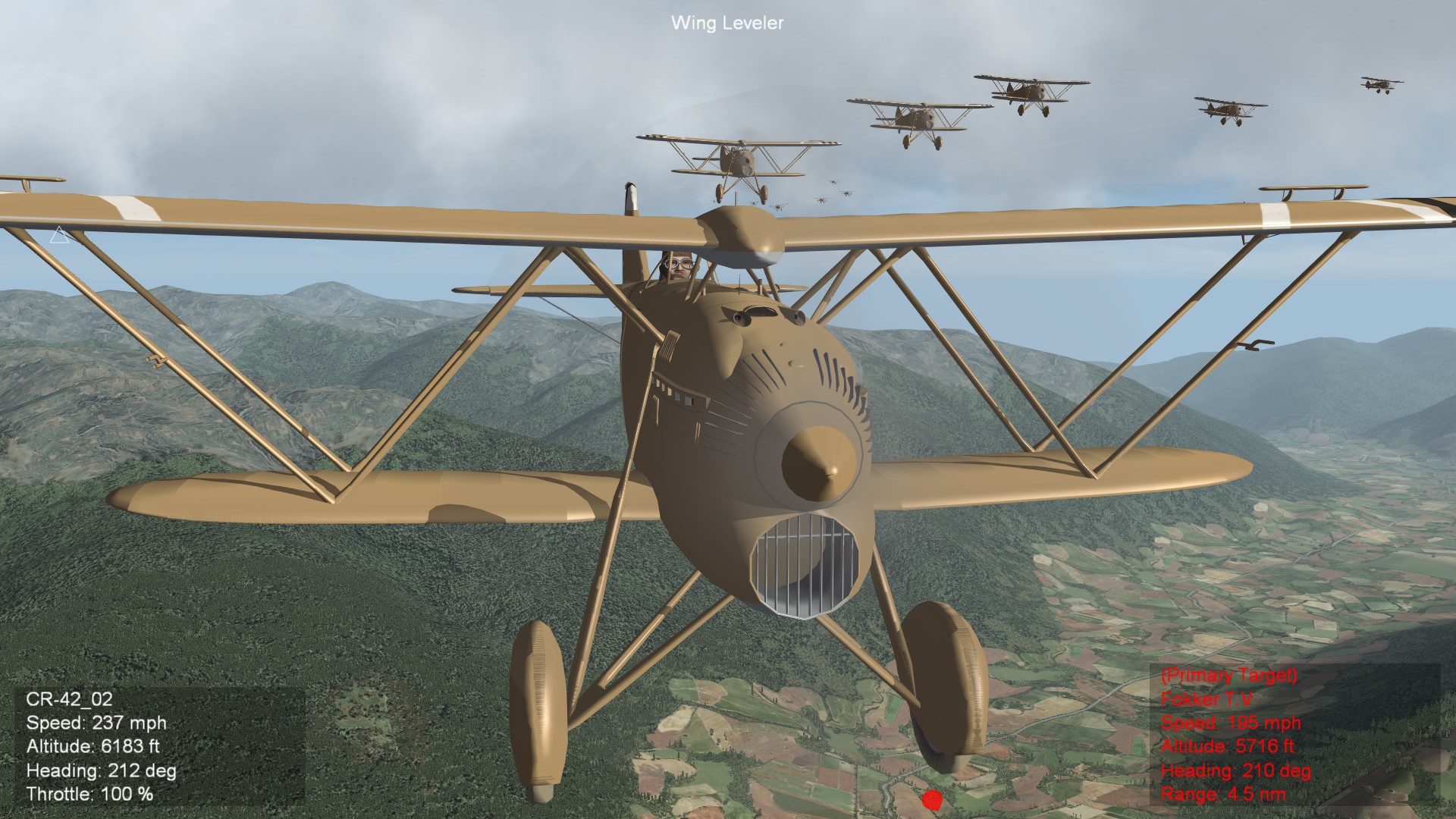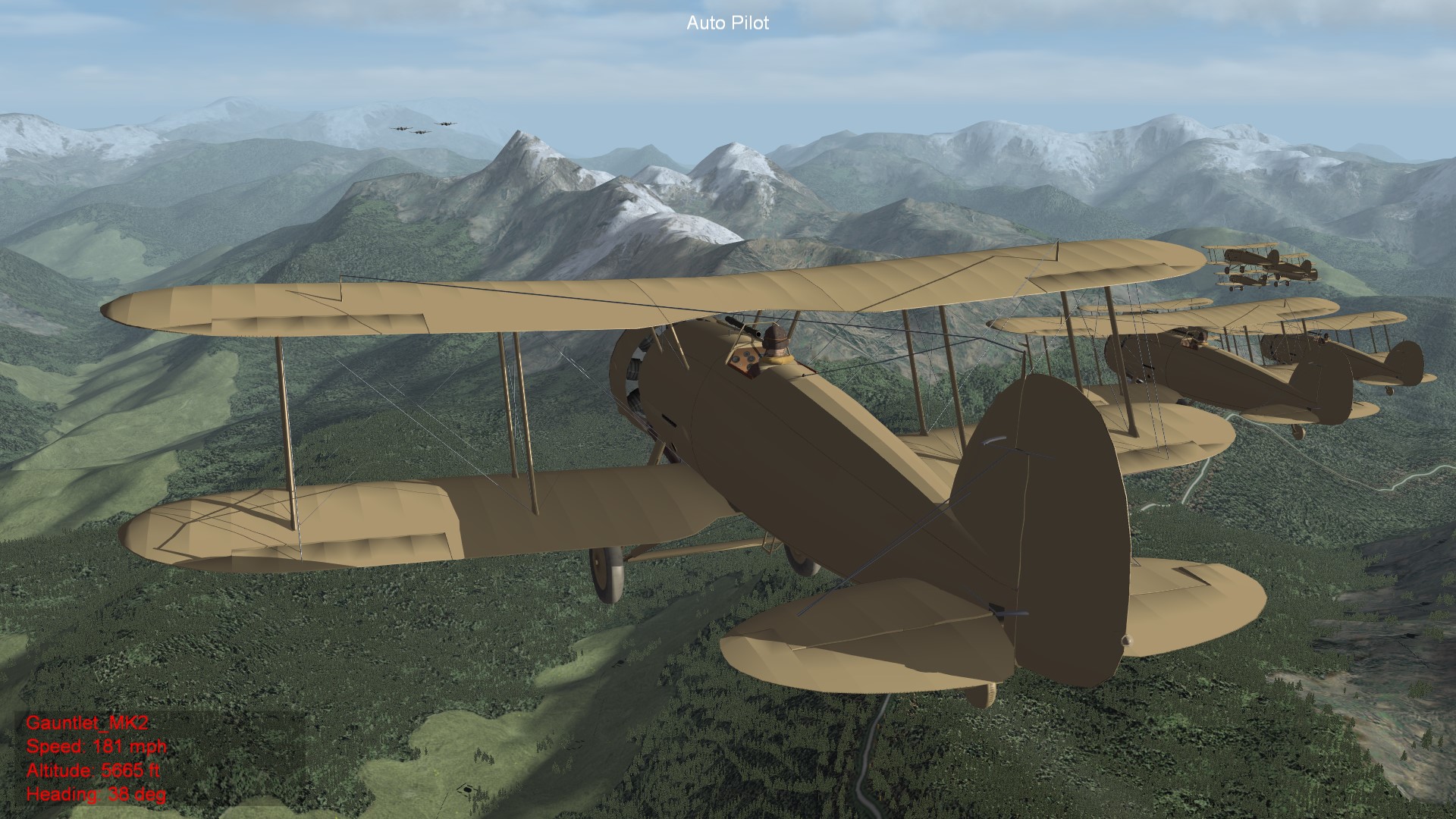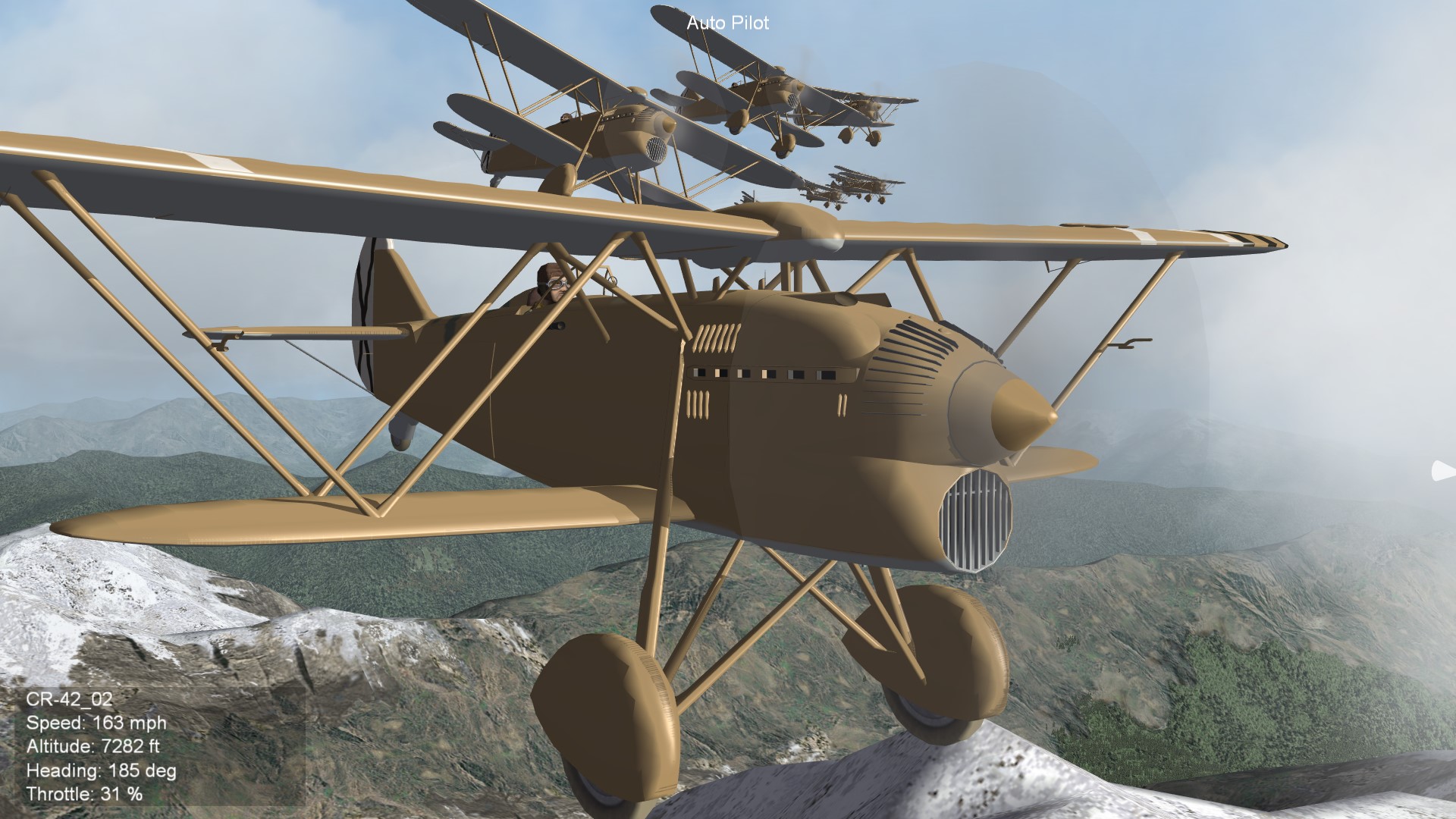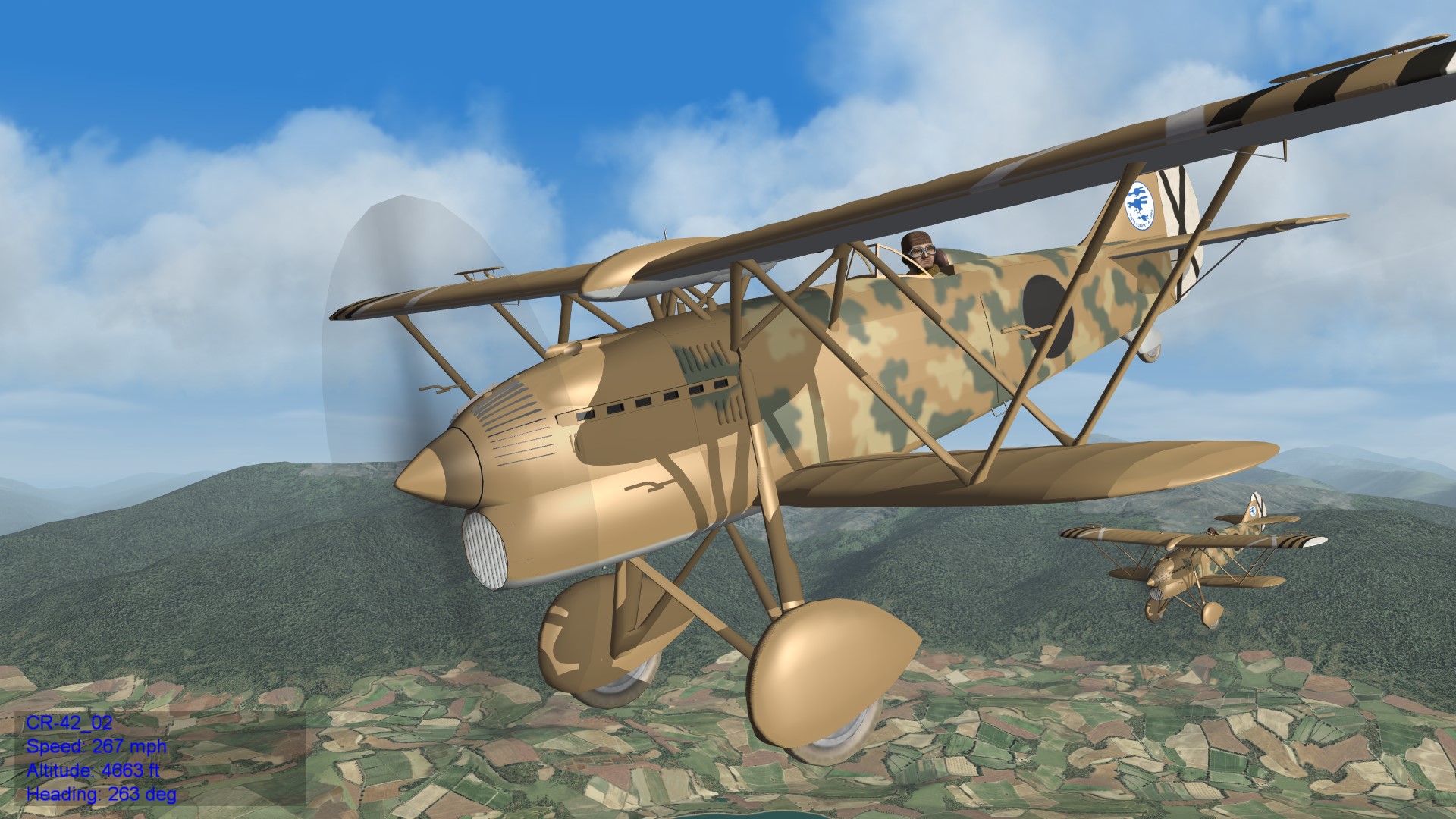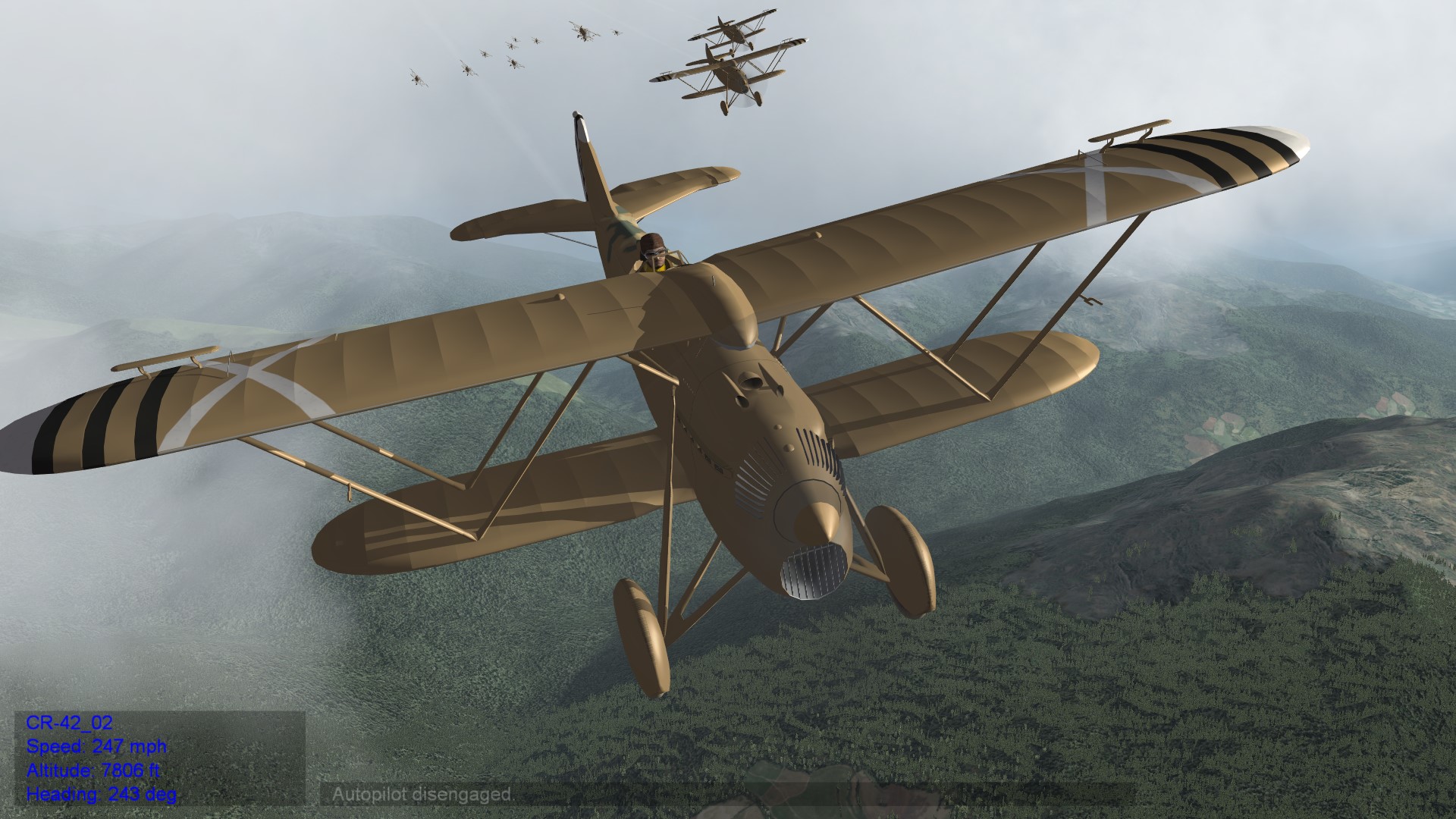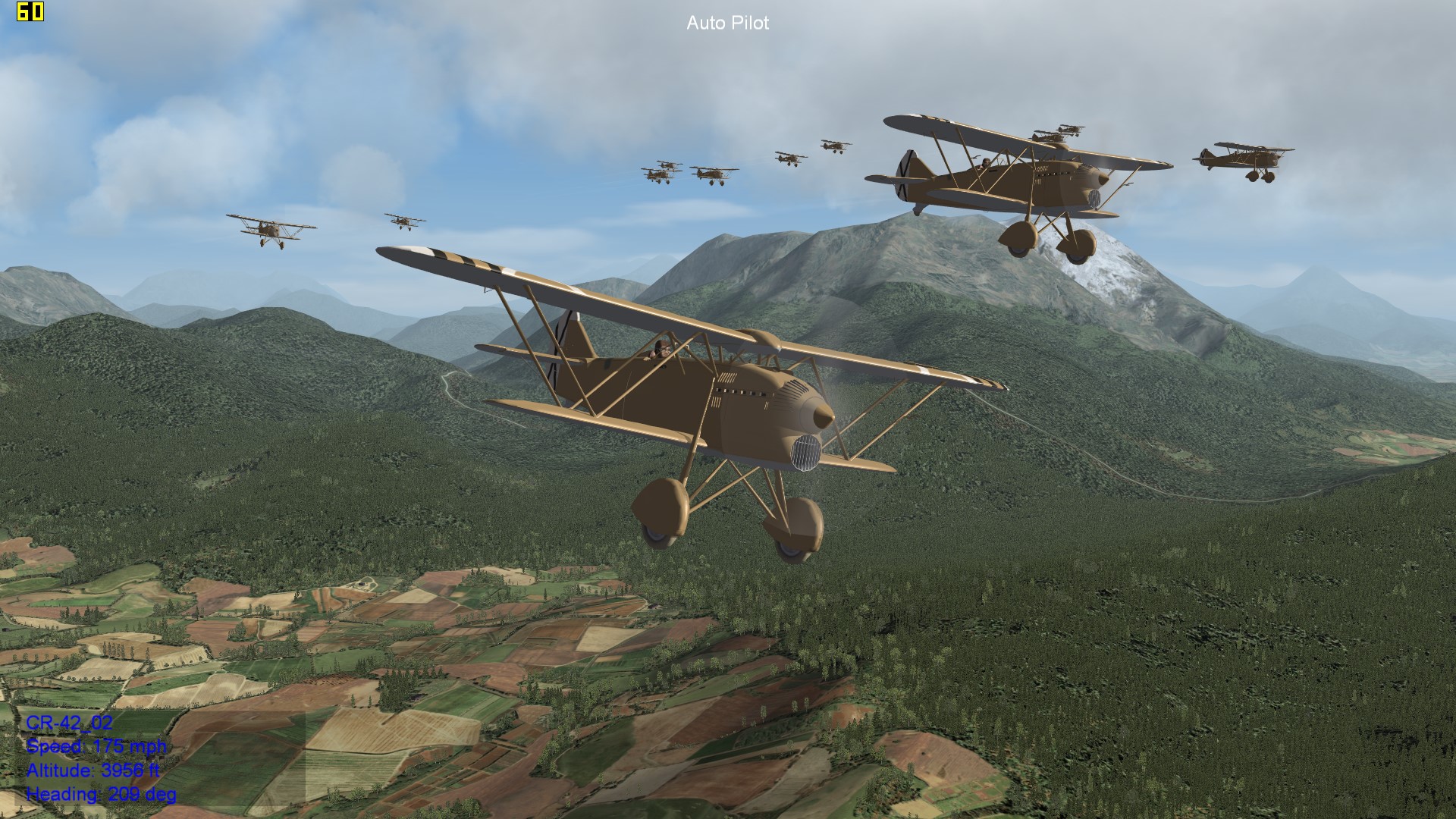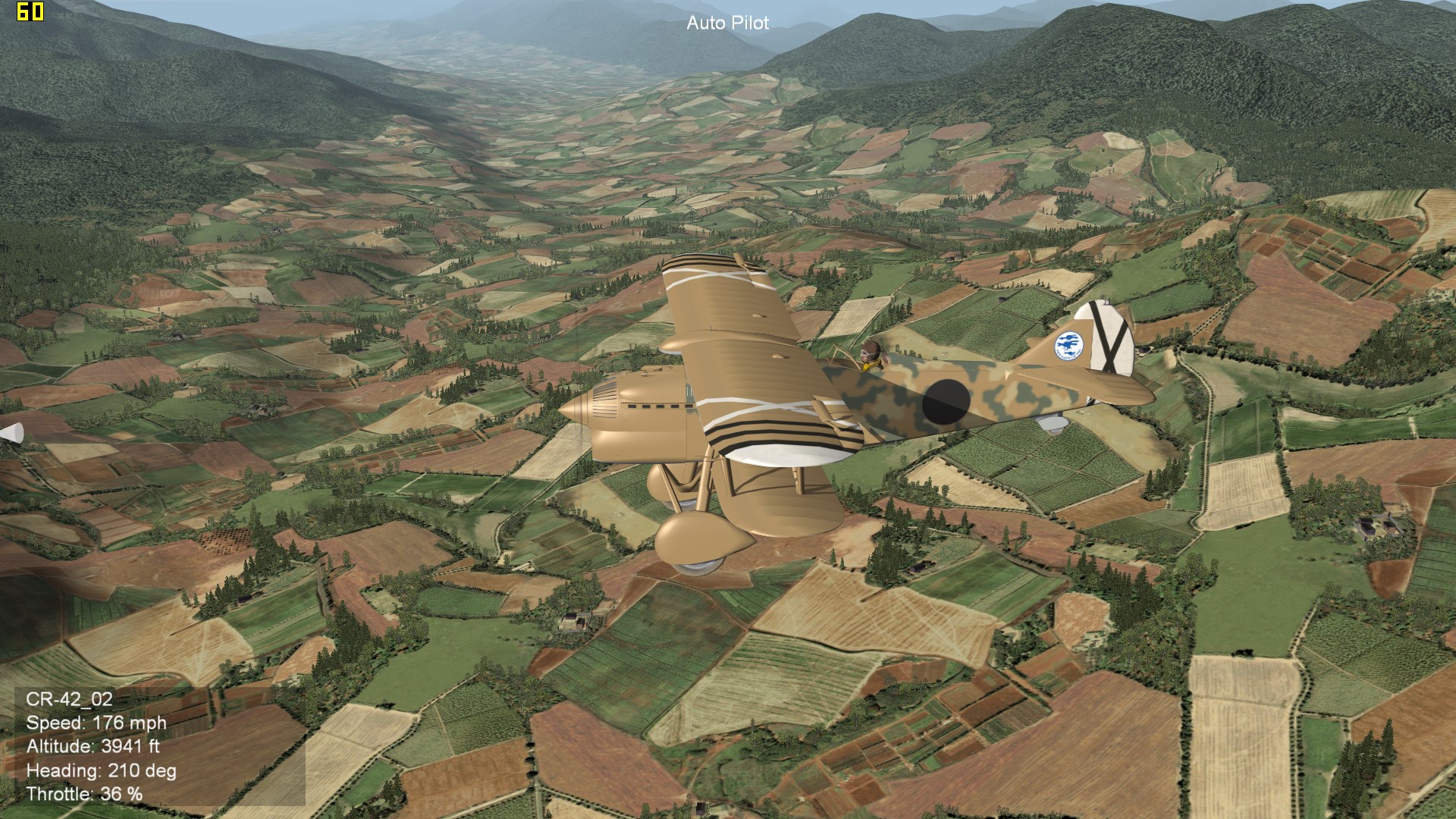-
Content count
2,813 -
Joined
-
Last visited
-
Days Won
93
Content Type
Profiles
Forums
Calendar
Gallery
Downloads
Store
Everything posted by Geezer
-
-
Shot below shows what I would like to accomplish, but have not tested the concept yet. I hope to use high poly heads on the figures that the player will see around airfields, while other figures will have lower poly heads. I also would like to make low poly versions of some aircraft so some decent maintenance scenes could be placed around airfields.
-
Muchas gracias! Recuerdo un poco de Espanol. But...only a little. These sites will really help Steve and I make ground objects. For instance, we want to make lots of guns/artillery.
-
Thank you - excellent link. The republic operated many types of aircraft, sometimes in VERY small quantities. The models of the Gamma and Dewoitine were made for a different mod but can be adapted to work in a SCW mod - sometime in the distant future. I already have a number of Italian aircraft that can be used in a SCW mod, plus Steve wants to make some new aircraft. Initially, we will work in FE1. At some point in the future, I would like to make an FE2 version with high-res trees, ground tiles, etc. This will keep us busy for years...
-
Steven1918 has developed an interest in 1930s stuff, so he and I have agreed to work together on this. It will take a while, but there is method to the madness. The WOFF developers have achieved an outstanding mod by carefully controlling the models and artwork to maintain a uniform appearance. That's what Steve and I hope to do.
-
Making good progress - new Nationalist figures and vehicles are mapped and textures started.
-
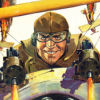
FE2 Observations and Musings
Geezer replied to Nicholas Bell's topic in Thirdwire - First Eagles 1&2
This is fascinating and caused me to dig up Woodman's reference on WW1 armament. When I bounced it against the information at the Aerodrome link, it became clear that your fundamental conclusions are correct - but the devil is in the details. The late war British mechanisms (such as the Constantinesco-Colley gear) that significantly boosted rate of fire, also increased stress on the components resulting in frequent failure of gun parts and holes in propeller blades. When combined with the Hazelton muzzle booster, guns would occasionally run away, firing as high as 1,000 rounds per minute - but very briefly! Also - as you have identified - the engine speed issue could be crucial. For example, the Austro-Hungarians were limited to 350-450 rounds per minute by the nature of the Schwartzlose gun, and it proved difficult to match the gun to most Austrian engines.. Austrian pilots had to keep one eye on their tachometer in combat and avoid shooting outside the narrow range of acceptable engine/gun rpm. -

FE2 Observations and Musings
Geezer replied to Nicholas Bell's topic in Thirdwire - First Eagles 1&2
Most of the aircraft gun systems used in WW1 were actually interrupters, not synchronizers. The guns would shoot independently, but would be interrupted by a propeller blade - usually there was no synchronization of gun speed to engine/propeller speed. The rate of fire was inhibited by the engine/propeller speed, which was slower than the gun's theoretical rate of fire. Not sure if the code can simulate all of this complexity. OTOH, you could have some fun. Have a recording of the pilot cussing a blue streak while beating on his cocking levers with a hammer! -

FE2 Observations and Musings
Geezer replied to Nicholas Bell's topic in Thirdwire - First Eagles 1&2
Another possibility is ejecting empty cartridges. Both the Spandau and Vickers were versions of the Maxim gun - all of them ejected spent cartridges down through the bottom of the gun. Most aircraft collected the empties in boxes located beneath the gun, but some aircraft - mostly British - funneled the empties down a chute to exit the aircraft. See upper right corner of Camel shot for ejection chute. This is easy to accomplish in FE1/FE2 as a lot of the original SF code is still operational. Example below is from my FE2 Gladiator. [Gun01] SystemType=FIXED_GUN //GunTypeName=303CAL_VICKERS_MK1 GunTypeName=303CAL_Browning InputName=FIRE_PRIMARY_GUN MuzzlePosition=-1.881,0.334,-0.599 LightPosition=-0.5437,2.1606,0.0605 AimAngles=0.4,0.0,0.0 MaxAmmo=400 EjectShells=TRUE EjectPosition=-1.973,-0.695,-0.70 EjectVelocity= 0.0,0.0,-2.0 //MinExtentPosition= -0.44, 0.05, -1.006 //MaxExtentPosition= -0.39, 0.15, -0.196 -

FE2 Observations and Musings
Geezer replied to Nicholas Bell's topic in Thirdwire - First Eagles 1&2
The code may not be up to this, but your quest for greater realism might include ammo feed problems? Ever wonder why the flexible cloth ammo belts, which worked fine when used by the infantry, were replaced by more complex and more expensive metal links in aircraft? Answer: the cloth belts would flex too much under high-G manuevering, resulting in a mis-feed and jam the guns. Also, some ammo feed systems were poorly designed at first, which all but guaranteed a mis-feed. French aircraft were especially bad in this regard - early Nieuports and SPADs used circular ammo drums, rather than ammo boxes. The drum system in all Nieuport 11s and early batches of Nieuport 17s required the ammo to travel as much as three feet and also bend 90 degrees before feeding into the gun! Later versions of the Nieuport and SPAD dropped the faulty drum design and used the more conventional ammo box located under the gun. Shot below shows drum system in SPAD 7. Smooth, reliable ammo feed has been a problem since WW1. The B-52 tail turrets I worked on also had ammo feed problems. Despite being propelled by powered starwheels all along a 10-foot length of flexible chute, ammo belts would usually kink and jam before all the ammo had been fired out. Operational units considered 70% fire-out to be "acceptable." -
In the last shot, the shelled ground looks really good. Or, is that bomb damage? Either way, nice work.
-
Over the Alps....
-
Two more test shots.
-
Steven1918 and I are making all new stuff - aircraft, figures, ground objects, etc - for the Spanish Civil War. Because Steve works in FE1, everything we make will work in FE1 though I would like to make a high performance FE2 equivalent. Shot below is FE1.
-
I second that - really impressive. Got a question. In the course of developing aircraft ingame, I noticed a lot of frame rate variation. Naturally some variation is normal, but I saw more variation than would seem justified so I set up a test with 16 Gladiators. Framerates varied from 13 to 41, even though there was no real variation in objects within the FOV. Has anyone elese gotten that much variation?



